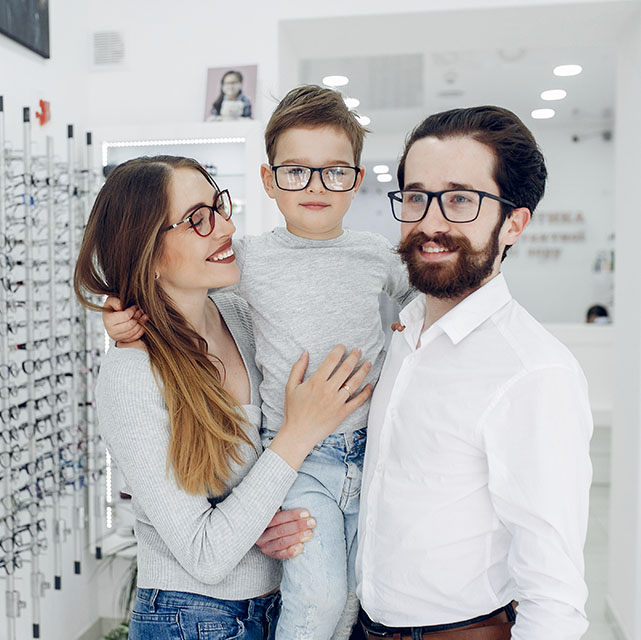Personal stories from parents of children diagnosed with eye tracking difficulties.
*Names have been changed for privacy protection.
Click here for a list of more success stories pages, you might just recognize your child in.
Isaac, age 16
We sought out Vision Therapy because my son had daily bad headaches at least in part from his eyes not tracking together. He was in a car accident which caused this problem.
He was unable to read more than a few minutes at a time, he had poor concentration, and his pleasure in reading was very low. His body coordination was also somewhat off. We had already gone to a psychologist, neurologist, and a psychiatrist. They were only nominal help.
He had his glasses prescription changed and most of the daily Vision Therapy work just became part of his homework. It was mostly self-directed at home since he was sixteen years old. I would check-up on him or remind him to do the work.
Since Vision Therapy, my son now has fewer headaches in a week instead of constant pain. He can concentrate for an hour on school work.
He can read for many hours, taking small breaks to rest his eyes. His coordination is very good now.
Isaac’s parent
Alisha, age 6
Alisha sometimes mixed her letters and numbers by reversing them. Also, some of her words/letters were printed backwards. I initially noted that her eyes were not tracking and aiming well.
Since Vision Therapy, Alisha is reading more fluidly and has less difficulty in pronouncing new words.
Sam L., Alisha’s parent
Michael, age 12
Michael had a problem with eye tracking and focus. He was not doing well in school and had problems with sports. Unfortunately, we thought he was just lazy and slow. Michael went for Vision Therapy for three months and very quickly improved in school.
There are no more problems regarding sports either. Now, after Vision Therapy, his real self comes through all the time.
Liz C., Michael’s parent
James, age 7
Before Vision Therapy, there was a large gap between James’ academic potential and his actual performance. Even though he is an intelligent boy, he was struggling with reading and writing. We were afraid that James would fall further and further behind in reading. We were also concerned about his self-esteem, even though he is a very bright boy.
Since starting Vision Therapy, his reading has improved. He is not skipping words and sentences, and has become a more fluid reader.
Now that we have corrected some of his mechanical vision problems, we expect the reading and writing to continue to improve.
Gayle L. James’ parent
Meagan, age 8
Meagan struggled in reading, writing and math. After a year of tutoring with limited success, she was found to suffer from eye tracking problems and poor visual perceptual skills.
As a result of Vision Therapy, Meagan now reads with fluency. Since she is no longer skipping lines, “everything makes more sense!” Her writing and spelling have improved as well. Her teachers and parents are thrilled, and Meagan is proud.
With Vision Therapy, we saw dramatic results in a relatively short time. Meagan is such a confident student now and shares her successes with me instead of asking me why all her friends could spell and she couldn’t, and why did everyone else understand math and she didn’t.
Reading is now a joy instead of a chore. I wish we had discovered Vision Therapy sooner!
Jenny S., Meagan’s parent
Paul, age 13
When my son Paul graduated from sixth grade, I noticed that his eyesight was deteriorating. This loss of visual acuity would be particularly critical since he is heavily involved in baseball, where good eyesight is one of the keys to success.
When I had Paul’s eyesight tested at Dr. X’s office, my fears were confirmed. His eyesight was not 20/20 and there were problems. We were informed that Vision Therapy could be a viable alternative in lieu of wearing glasses. Paul went for two six-week courses of Vision Therapy for eye tracking.
At the end of the intensive training, an eye exam confirmed that he had 20/20 or better eyesight. His increased visual acuity was also confirmed by his success in baseball. The eye tracking helped him follow and focus on the flight of the ball, critical for both batting and catching.
The therapy not only helped his vision, but has helped his athletic performance and concentration as well.
I recommend the program for vision repair as well as athletic performance.
Paul A.F Senior, Paul’s parent
Sam, age 11
Before Sam was tested at your office, he struggled in school, music and sports, which caused much frustration. We first realized something was wrong when he would play the piano.
If he heard the piece played first, he would play it from memory, but he had great difficulty reading the music. In sports, he was constantly falling down. In school, he would get extremely frustrated, especially as the workload and homework increased.
What we learned after his vision testing was that he had a tracking disorder, and that he had very limited peripheral vision. He fatigued within minutes of focusing on whatever project or activity he attempted and he felt completely defeated.
Now Sam has completed his Vision Therapy with great success and has enjoyed many victories throughout the year. He is a different child altogether! His temperament is much calmer, he is able to complete tasks, he thoroughly enjoys reading, he plays basketball and soccer, and he sight reads music easily.
Sam finished the 5th grade a week ago ending the year with A’s and B’s, which is a huge improvement over his grades a year ago.
I highly recommend Vision Therapy to parents of children who may be experiencing similar situations.
Sam’s parent
SEE RELATED: Guide to Vision Therapy
Schedule an appointment with a vision therapy eye doctor so that your child can be apart of these success stories.
Notes from a School Principal
I am writing my success story from a different perspective than that of a patient, or parent of a patient. I have been an educator for 45 years, functioning in such roles as a teacher, as principal and teacher simultaneously, as just a principal, and now as a director of a tutoring center.
About 20 years ago, an optometrist spoke at the Home/School association meeting. His topic was vision and reading. He spoke about how eye exercises could help some children to focus better and thus read better. He stressed the importance of teachers watching children’s eyes to see what they were doing as the student read.
His talk definitely inspired me. It changed the way I taught. I watched what was going on, and referred many students to the eye doctor, regardless of what school vision testing said. I saw changes in some students, and none in others. The search for effective learning solutions continued.
Eight years ago, as principal, I insisted that a particular child had a vision problem and should see an eye doctor. The teacher disagreed, saying “He can see everything else that goes on in and out of the classroom, he could read if he would just settle down, pay attention, and learn.” I finally called the student’s home and requested that he be taken to the eye doctor.
Results: the student had 20/20 vision, no glasses were needed, but he had a focusing problem. He was seeing double. We needed to do some Vision Therapy.
The most exciting part of my whole teaching experience has been having students come to class week after week while participating in Vision Therapy and see the changes in them.
- Tricia used to say “Do I have to read?” Now, she comes bouncing into the center and down the corridor to her classroom, because she can’t wait to get started. One day she was “lost.” When she was finally located, she was in her room, READING A BOOK. She would not participate in sport activities before. She now joins her family in shooting baskets.
- Michael couldn’t focus on anything on the written page. Now he comes to announce that he got to read to the kindergarten today.
- Richard can read now, and is so excited about being able to do what the rest of the class is doing.
- Mothers call to thank me for recognizing their child’s problem and referring them to the right help. Mothers are so happy about their child’s progress that they cry as they tell me about the successes.
I could go on and on. I have referred many students to Vision Therapy. Not one person who followed through on the suggestion has told me that they are sorry for accepting the suggestion, or doing the therapy, or that they begrudge the cost.
Principal, Teacher and Educator
Sarah, age 12
Before therapy, Sarah could read for a few minutes at a time. She got very frustrated with reading. Words were “moving” all around. She couldn’t read the work on the chalkboard. Sarah also experienced headaches almost every day. I took her to several optometrists. Nobody knew what to do to help her. I was very frustrated.
After Vision Therapy Sarah’s eye tracking has improved dramatically. She is now able to read a book without the words/letters “jumping” around. Also, she can now read from the blackboard without straining her eyes.
She rarely gets headaches anymore. Sarah finally got the help she needed!
Katherine, Sarah’ s parent
Caitlin, age 8
Caitlin is a different child now. When Caitlin was tested by Dr. X, she was seven years old and in second grade. She couldn’t read anything. She was tested at school and by our eye doctor for problems, but nothing significant was found. It was obvious to my husband and me that there were real problems.
Caitlin experienced frequent headaches, extreme frustration with schoolwork, and low self-esteem. Some of these things may appear unrelated to a vision problem but now Caitlin does homework without tears and in a timely manner and she only occasionally has a headache.
She is now 8 years old and repeating 2nd grade. She is still slightly behind in the class but is reading daily in school and at home. She reads books for fun now.
Last week I was helping in her class at school as she read to the class. I almost began to cry with happiness.
The activities she completed in therapy helped Caitlin with her tracking difficulties and we have reaped the benefits, which have spilled over into all areas of Caitlin’s life.
Marie B., Caitlin’s parent
Can you relate to any of these stories?
If your child has been struggling academically, refuses to read, or suffers from headaches, they may have a vision problem. Schedule a vision evaluation as soon as possible.
LEARN MORE: Guide to Vision Therapy
A vision therapy program can help them gain the visual skills they need for improved binocular vision— facilitating their ability to read more clearly, and with greater ease.


